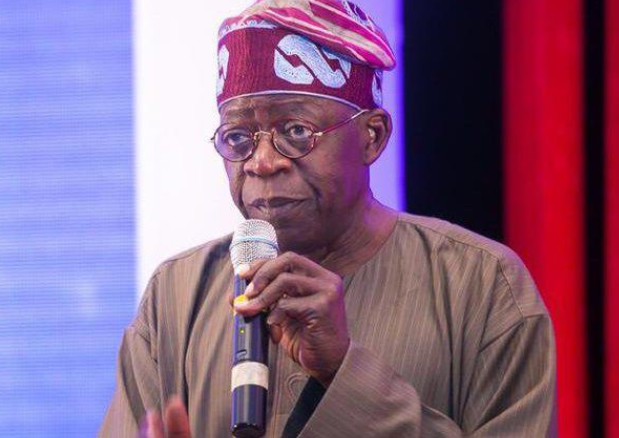No doubt the visit of the second Civilian Governor of Lagos State, Asiwaju Bola Ahmed Tinubu to the Nigeria State House Aso Rock Abuja on Monday 10th January, 2022 to intimate the President Buhari of his ambition to succeed him as the President and Commander in Chief of the Nigeria Armed Forces has opened a floodgate of actions and reactions.
As if this visit was what politicians were waiting for, immediately the news hit town that Asiwaju has spoken, both astute players and even members of the ‘ mosquitoes’ team’ began to unleash the political arena with various permutations, while the velocity of simple ammonic motions by politicians across the divide went on sudden increase.
The debate generated by Asiwaju’s visit to Aso Rock was still on, even in the midst of crises within the ruling APC, when Asiwaju at the 2022 Convocation Ceremony of the Lagos State University {LASU} unveiled to Nigerians, a 7-Point Agenda for economic revival and rebuilding of Nigeria.
Asiwaju Bola Tinubu who, for sometime now, has continued to maintain that he has what it takes to rebuild Nigeria, explained that the 7- Point Proposals would revive the country’s troubled economy and drastically reduce her dependence on Petro-Dollars.
According to him, the development of a national infrastructure plan; the
return of commodity exchange boards and the promotion of government-backed housing programmes were important measures that could help to reposition the national economy.
He explained that the decline in oil prices had revealed the travesty of the country’s extant economic model and went ahead to propose a national industrial policy that could create jobs as well as spur sustainable economic growth.
In his words, “We must realise that no populous nation has ever attained broadly-shared prosperity without first creating an industrial capacity that employs large numbers of people and manufactures a significant quantity of goods for domestic consumption or export.”
The former Lagos Governor emphasised that England, America and China had implemented policies to protect their key industries, promote employment and encourage exports. These countries, according to him, represent the past, present and immediate future of national economic achievement.
As hefurther stated: “A strong common thread is their policies of buffering strategic industries in ways that allow for the expansion and growth of
the overall economy. So, to him, Nigeria must press forward with a national industrial policy fostering the development of strategic industries that create jobs as well as spur further economic growth.
“Whether we decide to focus attention on steel, textiles, cars, machinery components, or other items, we must focus on manufacturing things that Nigerians and the rest of the world value and want to buy. We must partially reshape the market place to accomplish this.”
Tinubu also proposed that there is the need for the federal government to develop a policy of tax credits, subsidies that insulate critical sectors from the negative impact of imports. He empasised that, “A national economy cannot grow beyond the capacity of the infrastructure that serves it.”
According to him, Good infrastructure yields a prospering economy. Weak infrastructure relegates the economy to the poorhouse.
“The focus on infrastructure has important corollary benefit.” Asiwaju argued further that, “Federal expenditure for needed infrastructural spending has empirically proven in every place and in every era to boost recessionary economies and provide employment when sorely needed.
He emphatically declared that the country must overcome the economic, political and bureaucratic bottlenecks preventing her from achieving reliable electrical power. He identified lack of electricity as the single greatest impediment to the country’s economic advancement, saying that the lack of power inflates costs, undercuts productivity, causing havoc to overall economic activity and job creation.
He said Nigeria’s economic situation is literally and figuratively in the dark, adding that the hurdles being faced are not technical in nature as he noted that the political and economic factors currently impeding quest for reliable power must be stepped aside so that the country may obtain this critical ingredient to economic vitality.
Tinubu also proposed a credit-based economy, stating that credit for business investment was too costly in Nigeria. According to him, “The long-term economic strength of the nation is dependent on how we deploy idle men, material and machines into productive endeavor. And this is highly dependent on the interest rate.”
In his proposal on government-backed home mortgage system,he advocated that to system be re-engineered. To this end, he contended that mortgage loan agencies must be better funded and should liberalizse their eligibility requirements so that more people could qualify for them, saying they need to provide longer-term mortgages with manageable interest rates.
He argued that a workable credit system would reduce corruption and that the current lump-sum payment requirement tempted people towards misconduct.
“Good infrastructure yields a prospering economy. Weak infrastructure relegates the economy to the poorhouse. “
BOLA TINUBU
The ex-governor maintained that agriculture remains the backbone of the country and proposed that the federal government should help common farmers by improving rural output and incomes, while explaining that this could best be done through ensuring minimum prices for crops strategic to food security.
No doubt, with this 7 Point Agenda, Asiwaju Ahmed Bola Tinubu, has raised the stake in the debate fo reconstruction if Nigeria towards February 2023 elections.


